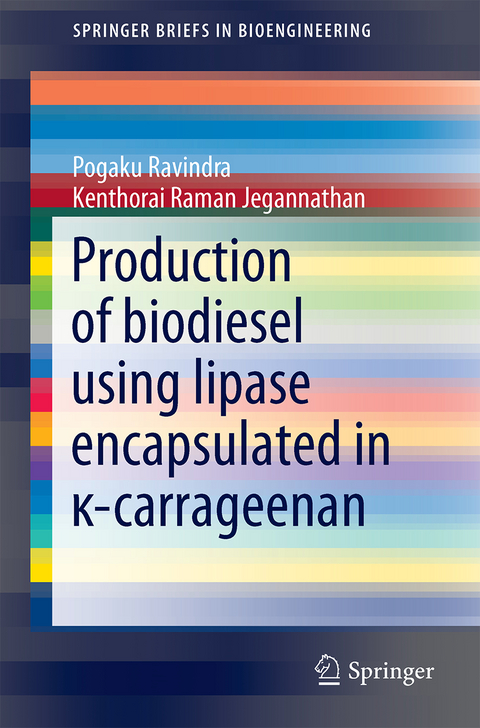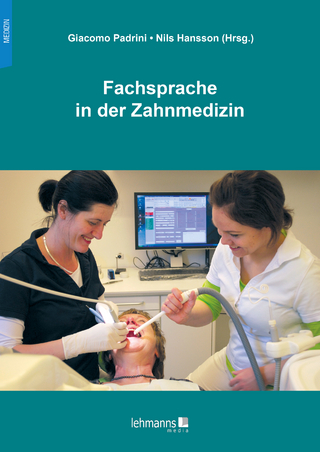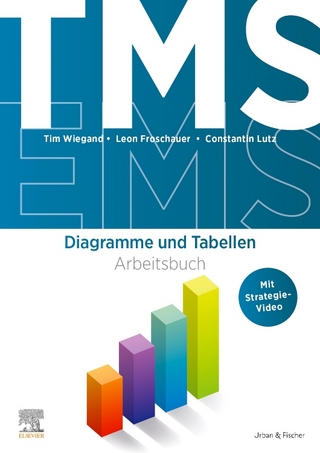
Production of biodiesel using lipase encapsulated in κ-carrageenan
Springer International Publishing (Verlag)
978-3-319-10821-6 (ISBN)
Prof. Dr. Pogaku Ravindra is an internationally renowned expert in bio energy and Biofuels field. He is a distinguished Professor of Chemical and Bioprocess Engineering, and the Postgraduate coordinator of School of Engineering and Information Technology at University Malaysia Sabah (UMS), Kota kinabalu, Sabah, Malaysia. He is also the UNESCO consultant on Sustainable energy projects. He has rich versatile and varied experience of teaching, research, industry, administrative and executive spanning over 30 years. Prof. Ravindra's research interests include bioenergy, wealth from waste (Single Cell protein etc), bioprocess engineering. At present his research group focus is on Bio-derived energy for sustainable development. His research work has culminated in over 150 research publications including chapters in books, critical reviews and presentations to his credit. He has published five books. He is the editor-in-chief, editorial board member, guest editor in referred journals and reviewer of many peer journals. Kenthorai Raman Jegannathan is a researcher at the École polytechnique fédérale de Lausanne in Switzerland.
Introduction.- Renewable energy .- Biofuels.- History of Biodiesel.- Global Biodiesel production.- Palm oil.- Biodiesel in Malaysia.- White biotechnology.- Biodiesel production using Lipase Enzymes.- Immobilization.- Biopolymer material.- Research background.- Life cycle assessment.- Economic assessment.- Research problem.- Approach.- Scope.- Literature review.- Biodiesel.- Process description.- Immobilization.- Factors affecting the production of biodiesel using immobilized Lipase.- Immobilized bioreactors and Operation Mode.- Kinetics of biodiesel production using immobilized lipase.- Choosing carrageenan as a matrix for lipase immobilization.- Methods for biocatalyst immobilization in carrageenan.- LCA studies on biodiesel production.- Economical assessment of biodiesel production.- Materials and methods.- Materials.- Methods.- Results and discussion.- Lipase encapsulation.- Physical characteristics of encapsulated lipase.- Stability characteristics of encapsulated lipase.- Kinetic parameters.- Biodiesel production from palm oil using encapsulated lipase in a stirred tank batch immobilized bioreactor.- of biodiesel using immobilized lipase in recirculated packed bed immobilized bioreactor.- Kinetics and modeling of biodiesel production using encapsulated lipase.- Catalytic and non-catalytic functions of -carrageenan encapsulated lipase.- Life cycle assessment (LCA) of biodiesel.- Economic assessment of biodiesel production.- Conclusions.
| Erscheint lt. Verlag | 24.10.2014 |
|---|---|
| Reihe/Serie | SpringerBriefs in Bioengineering |
| Zusatzinfo | X, 125 p. 66 illus., 14 illus. in color. |
| Verlagsort | Cham |
| Sprache | englisch |
| Maße | 155 x 235 mm |
| Gewicht | 263 g |
| Themenwelt | Medizin / Pharmazie ► Studium |
| Technik ► Elektrotechnik / Energietechnik | |
| Schlagworte | Biofuels • Biopolymer • Biotechnology • immobilization • renewable energy |
| ISBN-10 | 3-319-10821-2 / 3319108212 |
| ISBN-13 | 978-3-319-10821-6 / 9783319108216 |
| Zustand | Neuware |
| Haben Sie eine Frage zum Produkt? |
aus dem Bereich


